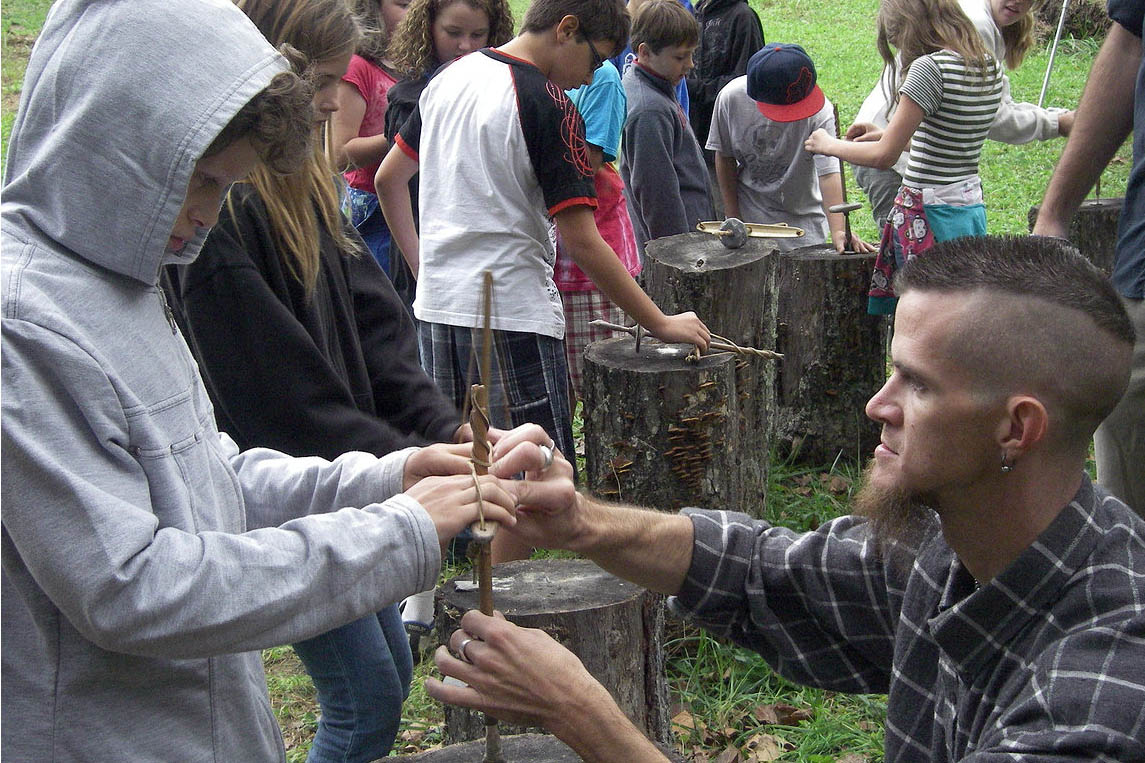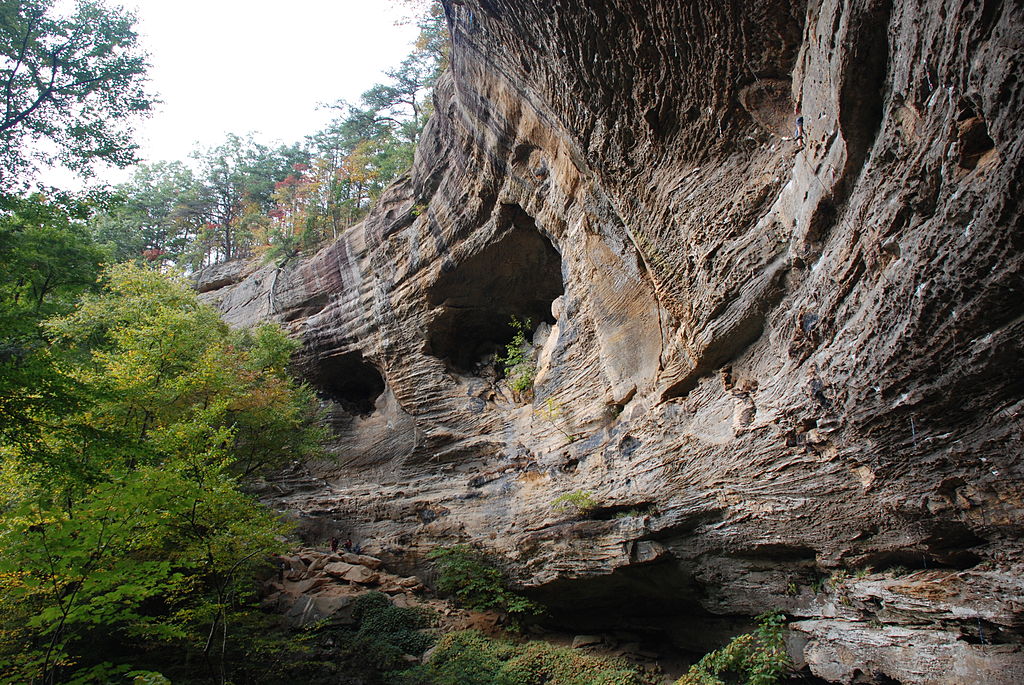by Keith Hautala
Kentucky archaeologists are presenting a two-day educational event this weekend for school children and the general public at the Gladie Learning Center, in Kentucky's Red River Gorge.
Now in its 25th year, the Living Archaeology Weekend (LAW) is Kentucky's largest and longest-running archaeological event. It is also the flagship event for the Commonwealth’s first Kentucky Archaeology Month. Demonstrations will explore the technologies and folkways of Kentucky's first settlers, the Native Americans, as well as the early pioneers who came here more than 200 years ago. Participants will also get an introduction to the science of archaeology and site preservation.
The Friday program, from 9 a.m. to 4 p.m., is for school groups with prior reservations. The Saturday program, from 10 a.m. to 5 p.m., is free and open to the public. Special events are also planned for Friday in honor of the silver anniversary.
and open to the public. Special events are also planned for Friday in honor of the silver anniversary.
The Living Archaeology Weekend is a collaborative project led by the United States Forest Service-Daniel Boone National Forest, the Kentucky Organization of Professional Archaeologists and the Kentucky Archaeological Survey, which is jointly administered by the Kentucky Heritage Council and the University of Kentucky Department of Anthropology.
The Department of Anthropology is also a sponsor of the event, and staff from the Kentucky Archaeological Survey will be on hand to discuss how native technologies and foodways changed through time, as well as issues in archeological site preservation. The Survey’s booth also will exhibit educational materials about Kentucky archaeology and Red River Gorge sites.
"The event is a great real-world opportunity for UK anthropology students, both undergraduate and graduate, to get hands-on experience interacting with diverse people in a public archaeology venue," said Kentucky Archaeological Survey Archaeologist/Education Coordinator Gwynn Henderson, who is a member of the LAW Steering Committee. "This extends to College of Education students, too, who come to LAW to see how fifth-graders learn in an outdoor classroom setting. LAW is a great setting for all students to see in practice what they have been reading and learning about in the classroom."
Native technology stations are perennial favorites among LAW participants. Demonstrators include professional archaeologists, Native American craftspeople, and nationally renowned primitive technology experts. The flintknappers always attract large crowds, as they discuss raw material acquisition and processing and demonstrate various chipped-stone tool manufacturing techniques. Various hunting technologies — including bow and arrow, atlatl and spear, and blow guns — will be explained and demonstrated. Participants will have opportunities to operate a pump drill and hurl a spear.
At other stations, visitors will hear about native pottery making, river cane basket weaving, and ground-stone tool manufacture. Expert demonstrators illustrate how cane flutes were manufactured and played, and they describe archaeological evidence of cane flutes from sites in Kentucky. Hands-on opportunities will be offered for hide scraping/tanning and cattail mat weaving. Although demonstrators are permitted to sell hand-crafted and replicated items on Saturday, and occasionally attendees bring artifacts for identification, there is a strict prohibition against buying-selling-trading authentic artifacts at the LAW event.
Another important set of educational stations relate to native beliefs, entertainment and recreation, and artistic expression. Native American storytellers will relate folk tales. Members of the Absentee Shawnee Tribe of Oklahoma will discuss contemporary social and ceremonial life, display Shawnee clothing and crafts, speak the Shawnee language and lead visitors in traditional dances. Members of the United Keetoowah Band of Cherokee Indians will demonstrate marbles, stick ball, and other traditional games as they discuss the importance of games in Cherokee culture.
 The pioneer foodways stations focus on the importance of corn and how it was processed and cooked. Demonstrators will show methods for cooking over an open fire. On Saturday, visitors are invited to sample traditionally prepared soup beans and delicious corn bread prepared by the Frenchburg Job Corps.
The pioneer foodways stations focus on the importance of corn and how it was processed and cooked. Demonstrators will show methods for cooking over an open fire. On Saturday, visitors are invited to sample traditionally prepared soup beans and delicious corn bread prepared by the Frenchburg Job Corps.
Pioneer craft demonstrations focus on corn husk dolls and other crafts, spinning, weaving, and quilting. Blacksmithing and long-hunter displays round out the pioneer demonstrations. Music demonstrations feature a band with traditional claw-hammer banjo and washboard base instruments.
The Gladie Cabin, a permanent exhibit at the Gladie Learning Center, is featured in the pioneer demonstration area. Visitors will learn about pioneer construction methods, housing and daily lifeways through self-guided tours of the cabin. The cabin is listed on the National Register of Historic Places. An exhibit will be on-site and staff from the Kentucky Heritage Council will discuss this important cultural resources preservation program.
A website at www.livingarchaeologyweekend.org details the weekend's events and contains lesson plans and other materials for teachers, as well as links to videos and PowerPoint presentations that will provide some useful background information to help visitors get the most from the event.
